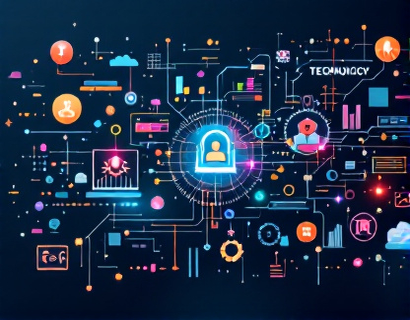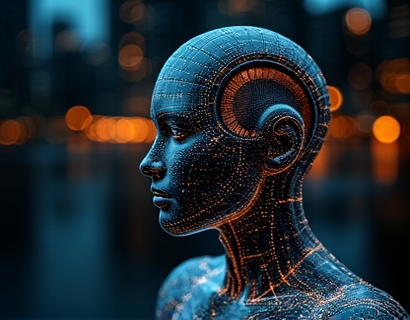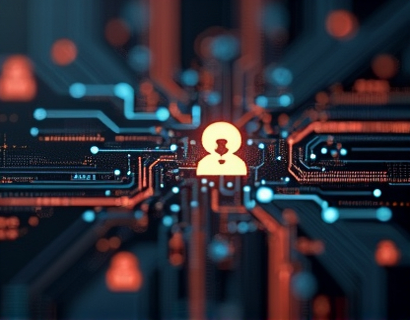Transforming Education with AI-Powered Learning Companions
The integration of Artificial Intelligence in education has ushered in a new era of personalized learning, where students and educators can access instant, tailored insights and industry knowledge. This revolution is driven by advanced AI chat interfaces that serve as intelligent companions, optimizing the educational journey by providing real-time, personalized support. These AI-powered tools are redefining how learning is approached, making education more accessible, efficient, and effective.
Personalized Study Insights
One of the most significant advantages of AI-powered learning companions is their ability to deliver personalized study insights. By analyzing a user's learning patterns, strengths, and weaknesses, these systems can recommend customized study materials, resources, and strategies. This tailored approach ensures that each student receives the exact support they need to excel in their studies. For instance, if a student struggles with a particular concept, the AI can identify this and provide additional explanations, examples, and practice problems to reinforce understanding.
The personalization extends beyond just academic content. AI can also adapt to a student's preferred learning style, whether they are visual, auditory, or kinesthetic learners. For visual learners, the system might suggest videos and infographics, while auditory learners could benefit from podcasts and lectures. This adaptive capability ensures that learning is not only personalized but also engaging and effective.
Instant Access to Industry Knowledge
In today's rapidly evolving job market, staying updated with the latest industry trends and knowledge is crucial. AI-powered learning companions bridge this gap by providing instant access to industry insights. Whether a student is studying business, technology, healthcare, or any other field, these AI systems can deliver real-time data on industry developments, emerging technologies, and professional best practices. This immediate access to current and relevant information helps students stay ahead of the curve and prepares them for future careers.
Moreover, AI can connect students with industry experts and professionals through chat interfaces, offering mentorship and guidance. These interactions provide valuable insights into the practical applications of theoretical knowledge, helping students understand the real-world implications of what they are learning. This connection between academia and industry not only enriches the learning experience but also enhances the employability of graduates.
Enhanced Learning Experience through AI Chat Interfaces
AI chat interfaces are the cornerstone of this educational revolution, offering a seamless and interactive learning experience. These chatbots are designed to understand natural language queries and provide accurate, context-aware responses. Students can ask questions, seek clarification on complex topics, or request recommendations, and the AI will respond promptly and effectively. This immediacy and accessibility make learning more convenient and less time-consuming.
The conversational nature of AI chat interfaces also makes learning more engaging. Instead of passively consuming information, students can actively engage in discussions, ask follow-up questions, and explore topics in depth. This interactive approach fosters a deeper understanding of the material and encourages critical thinking and problem-solving skills.
Support for Students
For students, the benefits of AI-powered learning companions are manifold. Firstly, these tools save time by quickly providing answers to common questions and directing users to relevant resources. This efficiency allows students to focus more on learning and less on searching for information. Additionally, AI can track progress and identify areas where a student may be struggling, enabling early intervention and targeted support.
Another significant advantage is the reduction of anxiety and stress associated with learning. Knowing that help is always available and just a message away can be incredibly reassuring. AI chat interfaces can also simulate one-on-one tutoring sessions, offering personalized feedback and encouragement, which can boost confidence and motivation.
Support for Educators
Educators also stand to gain greatly from AI-powered learning companions. These tools can assist teachers in various ways, from lesson planning to student assessment. By analyzing student data, AI can provide insights into class performance, highlighting areas where the entire class or individual students may need additional support. This data-driven approach enables educators to tailor their teaching methods and materials to better meet the needs of their students.
Furthermore, AI can automate administrative tasks such as grading and attendance tracking, freeing up valuable time for teachers to focus on what matters most—teaching and mentoring. This increased efficiency not only reduces workload but also enhances the overall quality of education.
Secure and Reliable AI Systems
The effectiveness of AI-powered learning companions is underpinned by robust and secure systems. These platforms are designed with advanced security measures to protect user data and ensure privacy. Encryption, regular security audits, and compliance with data protection regulations are standard practices. Users can trust that their information is safe and that their learning experience is not compromised by security breaches.
Moreover, the reliability of AI systems is crucial for their success in educational settings. These platforms are built to handle large volumes of data and user interactions without lag or errors. Continuous improvements and updates ensure that the AI remains up-to-date with the latest educational research and technological advancements, providing a consistently high-quality learning experience.
Future Prospects and Challenges
As AI technology continues to evolve, the potential for AI-powered learning companions in education is vast. Future developments may include more sophisticated natural language processing, enhanced emotional intelligence, and deeper integration with virtual and augmented reality. These advancements could create even more immersive and personalized learning environments, further bridging the gap between theory and practice.
However, there are also challenges to consider. Ensuring equitable access to AI-powered tools is crucial to avoid widening the educational gap between different socio-economic groups. Additionally, there is a need for continuous training and support for both students and educators to fully leverage these technologies. Addressing these challenges will be key to realizing the full potential of AI in education.
Conclusion
The integration of AI-powered learning companions represents a significant leap forward in personalized education. By providing instant access to tailored study insights and industry knowledge, these AI chat interfaces optimize the learning journey for students and educators alike. The combination of personalized support, real-time industry updates, and efficient administrative tools creates a comprehensive and effective educational ecosystem. As this technology continues to advance, it holds the promise of making high-quality education more accessible and impactful for all.









































